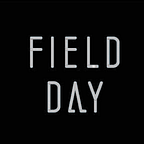Lunchroom Leftovers: Using Siftr to Reduce Waste at School
Lindy Biller, for Field Day Lab
No one knew how much food was being wasted. The third-graders of Wisconsin were invited to dig into this question with the use of Field Day Lab’s Siftr data collection tool. A group of Wisconsin third-graders discovered, among other things, some very thirsty five-year-olds.
The third-graders were participating in Lunchroom Leftovers, a statewide initiative that launched at the 2018 Wisconsin Science Festival. Participants kept track of lunchroom waste and posted the data on Siftr.
As the third-graders sorted through piles of food waste, they noticed something strange. Kids were throwing away full cartons of milk without even opening them.
The third-graders knew something didn’t add up, so they talked to the kindergarteners who were throwing their milk away.
Were the kindergarteners running out of time to drink their milk?
Nope. That’s not it.
Were they filling up on chicken nuggets and tater tots?
Nice try, but that’s not it, either.
The kindergarteners were throwing out their milk cartons because they didn’t know how to open them.
According to Travis Tangen, who heard the story from a Wisconsin science teacher, the third graders came up with a plan. They rotated through the lunchroom and taught the kindergarteners how to open their milk. “This allowed the kids not to be frustrated,” Travis said. “So they opened their milk, and they drank it.”
When I heard this story, my heart basically melted. My son is four, and I know he’d have no idea how to open a milk carton. Let’s face it, there’s not usually a training program for that. Teachers want to help, but kids don’t always know how to ask.
The third graders used scientific inquiry to find and solve a problem that nobody else had noticed. Now the kindergarteners get plenty of calcium, and the milk isn’t going to waste.
“This is what matters,” Travis said. “Kids learned, collected data, did analysis, took action, and made social change in their classroom.”
Lunchroom Leftovers was the first-ever statewide science project in Wisconsin, and maybe even the first of its kind in the country. Travis started planning Lunchroom Leftovers with a DPI group of about twelve people. The group grew through science teacher conferences and networking. Now Travis is working alongside a coalition of more than 80 researchers, scientists, and professionals across Wisconsin.
Now the coalition is launching another statewide science project. This time, the project will span five years, allowing for more learning and growth.
“We wanted to think long-term,” said Travis. “Water crosses grade levels and allows for more connectedness. Wisconsin is a water education state.”
Kids and teachers are already starting to share water-related resources, projects, and activities on Siftr. Users can share what they’re doing, leave comments, and search for inspiration. Travis hopes the project will shine a light on what kids and teachers are already doing. So far, it seems to be working. Siftr posts are already coming in from across the state.
“We want people to feel like they can hop on board and jump in,” said Travis. “The more local representation we can get, the better it will be for everybody. People can look at the Siftr and say, ‘Oh I can do that!’ It’s empowering.”
WATER: A Statewide Inquiry Experience launches this week at the Wisconsin Science Festival. The launch project will focus on water runoff at Wisconsin schools. Kids will choose a defined area, conduct periodic sweeps, and use special equipment to look at how nutrients in runoff change over time. Learn more about the project here.
Editor’s Note: Do you know the secret identity of our third-grade superheroes? If you’re the science teacher who shared this story with Travis, reach out here so we can name-drop you and your students!
